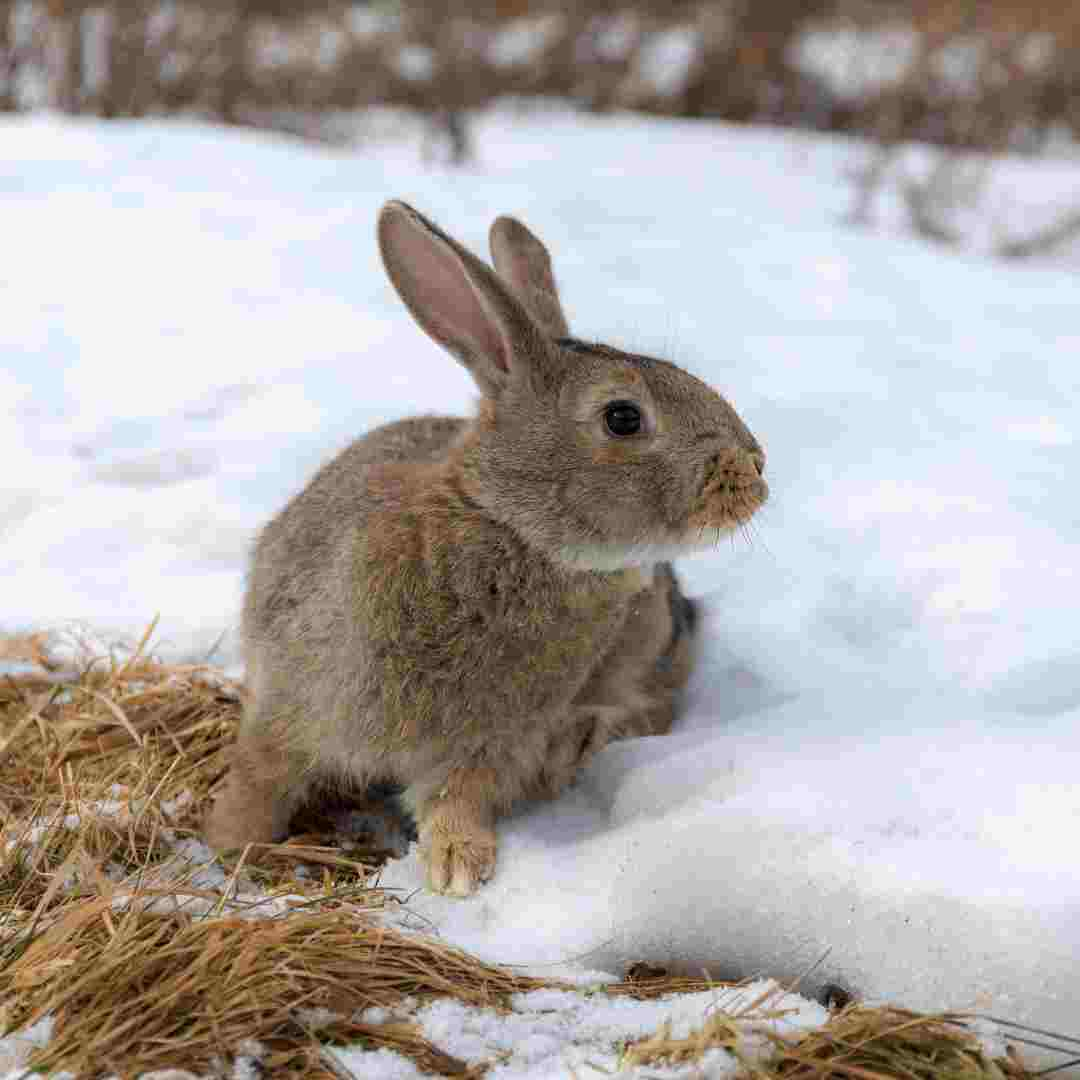Winterizing Your Rabbit: Tips for Keeping Your Bunny Warm and Cozy
Prepare your rabbit for winter as winter approaches. You can keep your rabbit toasty all winter with proper preparation. Tips for winterizing your rabbit:
1. Provide a Warm Shelter: Give your rabbit a warm, dry place to go when the weather drops. The best hutch or shed has a watertight roof and insulated walls. You can use a cardboard box with straw or hay instead of a hutch or shed.
2. Extra Bedding: To keep your rabbit warm, add bedding to their hutch or shelter. Straw and hay absorb and insulate well.
3. Bring the Hutch Indoors: In winter, bring your rabbit's hutch indoors. This will keep them warm and dry in the cold.
4. Give Your Rabbit Heat: If you can't relocate the hutch indoors, give your rabbit heat. Heat lamps and pads can keep your rabbit warm.
5. Feed a High-Quality meal: To stay warm, feed your rabbit a high-quality meal. Give them hay, vegetables, and pellets.
6. Watch Your Rabbit: Keep your rabbit warm and healthy. Call your vet if you see any symptoms.
Following these tips will help keep your rabbit warm in winter. You can protect your rabbit from the cold with proper preparation.
Winter Nutrition for Rabbits
Make sure your rabbit's diet is winter-ready as winter approaches. Rabbits are naturally cold-adapted, but their diet should be changed to keep them healthy and active.
Hay, fresh vegetables, and little pellets are a rabbit's diet. Hay, abundant in fiber, should make up most of their diet. Daily fresh vegetables contain vitamins and minerals. Overfeeding pellets can cause obesity.
Winter rabbits need additional hay to stay warm. Hay insulates your rabbit's body temperature. Hay offers fiber and aids digestion.
Winter rabbits need fresh vegetables. Vitamins and minerals in vegetables boost your rabbit's immune system. Kale and spinach are especially good in winter.
Finally, winter rabbits need a little pellet food. High-calorie pellets can keep your rabbit warm. However, overfeeding pellets can cause obesity.
Following these easy principles will guarantee your rabbit's winter food meets its nutritional demands. A balanced diet keeps your rabbit healthy and active in winter.
Rabbit Winter Wonderland: Indoor Enrichment Ideas
You and your rabbit will enjoy creating a winter wonderland. A setting that fosters rabbits' natural curiosity and activity helps keep them healthy and happy. Create a rabbit-friendly winter wonderland with these ideas.
First, give your rabbit some winter-themed toys and accessories. A winter-themed tunnel, bell, or snowman-shaped chew toy are examples. Add a comfortable fleece blanket or decorative pillow for winter.
Make a winter bunny obstacle course. Your bunny may explore tunnels, ramps, and platforms. Add a snowman tunnel or a holiday bell.
Finally, give your bunny winter snacks. Carrots, celery, greens, and winter goodies like dried cranberries or apple slices could be included.
You and your rabbit will enjoy creating a winter wonderland. With a few easy adjustments, you can create an environment that fosters exploration and play, giving your rabbit hours of enjoyment and enrichment.
How to Keep Your Rabbit Active in Winter: Outdoor Exercise Benefits.
As winter comes, consider how to keep your rabbit active and healthy. Winter rabbit activity has many benefits.
Outdoor exercise builds rabbit muscles and bones. Rabbits are inherently active, so frequent exercise keeps their muscles and bones robust. Outdoor exercise keeps your rabbit's coat healthy and lustrous. Cold air stimulates rabbit fur oil production, keeping it healthy and lustrous.
Outdoor exercise stimulates your rabbit's thinking. Exploring the outdoors can keep rabbits' minds active and intrigued. This prevents boredom and stress.
Finally, outside exercise helps your rabbit's digestion. Exercise stimulates the digestive tract, preventing constipation.
Winter rabbit exercise requires safeguards. First, protect your rabbit from the cold with a coat or jumper. Second, since cold weather makes rabbits more vulnerable to predators, always supervise them. Finally, give your bunny a cozy place to relax between workouts.
These techniques will keep your rabbit healthy and active during winter. Rabbits need outside exercise to stay healthy and happy in the winter.

Winter Health Issues and Prevention Strategies for Rabbits
As winter comes, rabbits need extra protection from harsh weather and diseases. Winter infections are especially dangerous for rabbits, therefore it's crucial to know how to prevent them.
Rabbits can have respiratory infections in winter. Cold, drafts, and humidity trigger these infections. Warm, dry housing prevents respiratory illnesses in rabbits. Keep the rabbit's hutch above 10°C and dry. Keep your rabbit's home clean and dust-free.
Rabbits can get stomach issues in winter. Diet or stress can cause them. Avoid diet changes and feed your rabbit a balanced diet to avoid gastrointestinal issues. Mental stimulation and exercise alleviate stress in rabbits.
Finally, watch for rabbit disease indicators. Lethargy, appetite loss, and behavior changes are indicators of disease. Take your rabbit to the vet if any of these symptoms appear.
Follow these winter illness prevention tips to keep your rabbit healthy and safe.